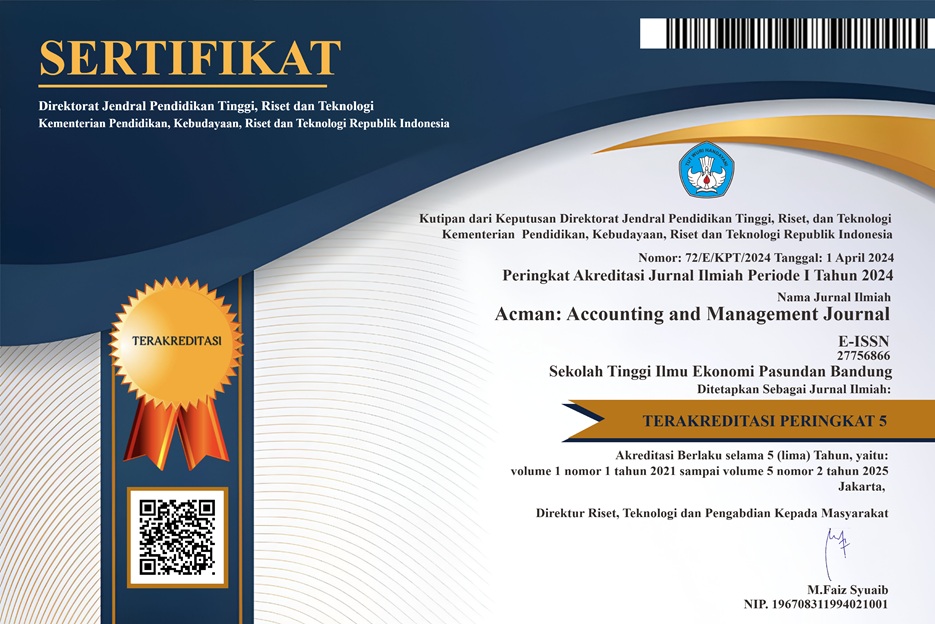Pengaruh Tax Retention Rate, Deferred Tax, Deferred Tax Assets, Dan Return On Assets Terhadap Earning Management
(Studi pada perusahaan sektor perdagangan, jasa, dan investasi yang terdaftar di Bursa Efek Indonesia periode 2011 - 2018)
DOI:
https://doi.org/10.55208/aj.v1i2.22Keywords:
tax retention rate, deferred tax, deferred tax assets, earning managementAbstract
Earning Management is an action usually taken by managers to increase or decrease company profits in the current period following the goals and needs of the company. This study aims to examine the Tax Retention Rate, Deferred Tax, Deferred Tax Assets, and Return on Assets on Earning Management in Trade, Service, and Investment Sector companies listed on the Indonesia Stock Exchange for 2011-2018. The data used is secondary data. This research method is quantitative with a descriptive and verification approach. The population of this research is trading, service, and investment companies as many as 164 companies. The number of samples in this study was 11 companies which were determined using the nonprobability sampling method with purposive sampling technique; data collection was carried out through documentation and literature study. This study was tested using classical assumptions, multiple linear regression analysis, Pearson correlation coefficient test, coefficient of determination test, and hypothesis testing using a partial test (t-test) and simultaneous test (f test). Based on the research results on the t-test, the results obtained that the Tax Retention Rate has a significant negative effect on Earning Management where tcount is -4.945, greater than t-table is -1.992. Deferred Tax has no effect on Earning Management where the count of 0.732 is more minor than the t-table of 1.992. Deferred Tax Assets have no effect on Earning Management where a count of 0.261 is more minor than the t-table of -1.992. Return on Assets has no effect on Earning Management where a count of 1.238 is more significant than t-table of 1.992. Based on the research results on the f test, the results show that the Tax Retention Rate, Deferred Tax, Deferred Tax Assets, and Return on Assets simultaneously (together) affect Earning Management where the count value of 6.470 is more significant than the f-table of 2.46. The coefficient of determination concludes that the Tax Retention Rate, Deferred Tax, Deferred Tax, Deferred Tax Assets, and Return on Assets affect Earning Management by 23.8%. While the remaining 76.2% were influenced by other factors outside this research, such as good governance, free cash flow, leverage, and company size.
Downloads
Published
How to Cite
Issue
Section
License
Copyright (c) 2021 Dinny Nuari Nurlita Rochaendi, Wajib Ginting

This work is licensed under a Creative Commons Attribution-NonCommercial-ShareAlike 4.0 International License.








